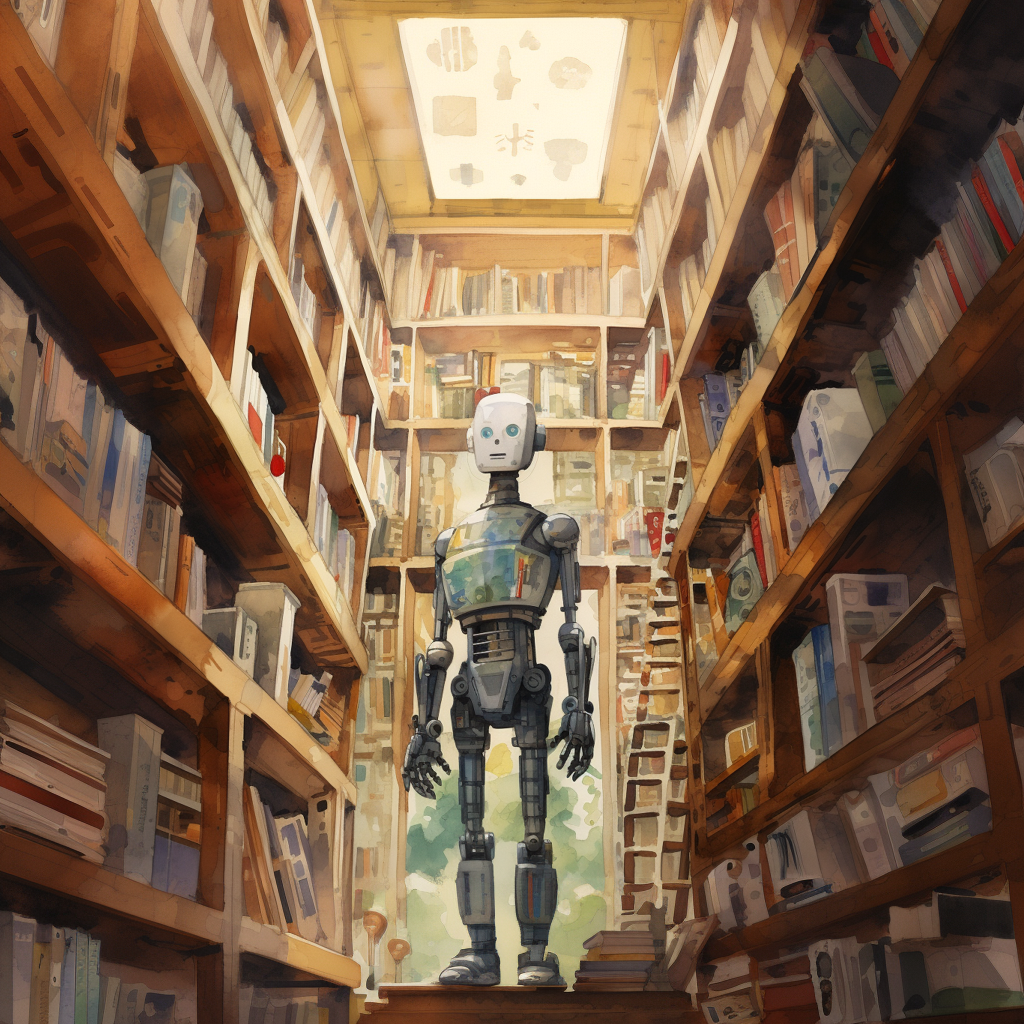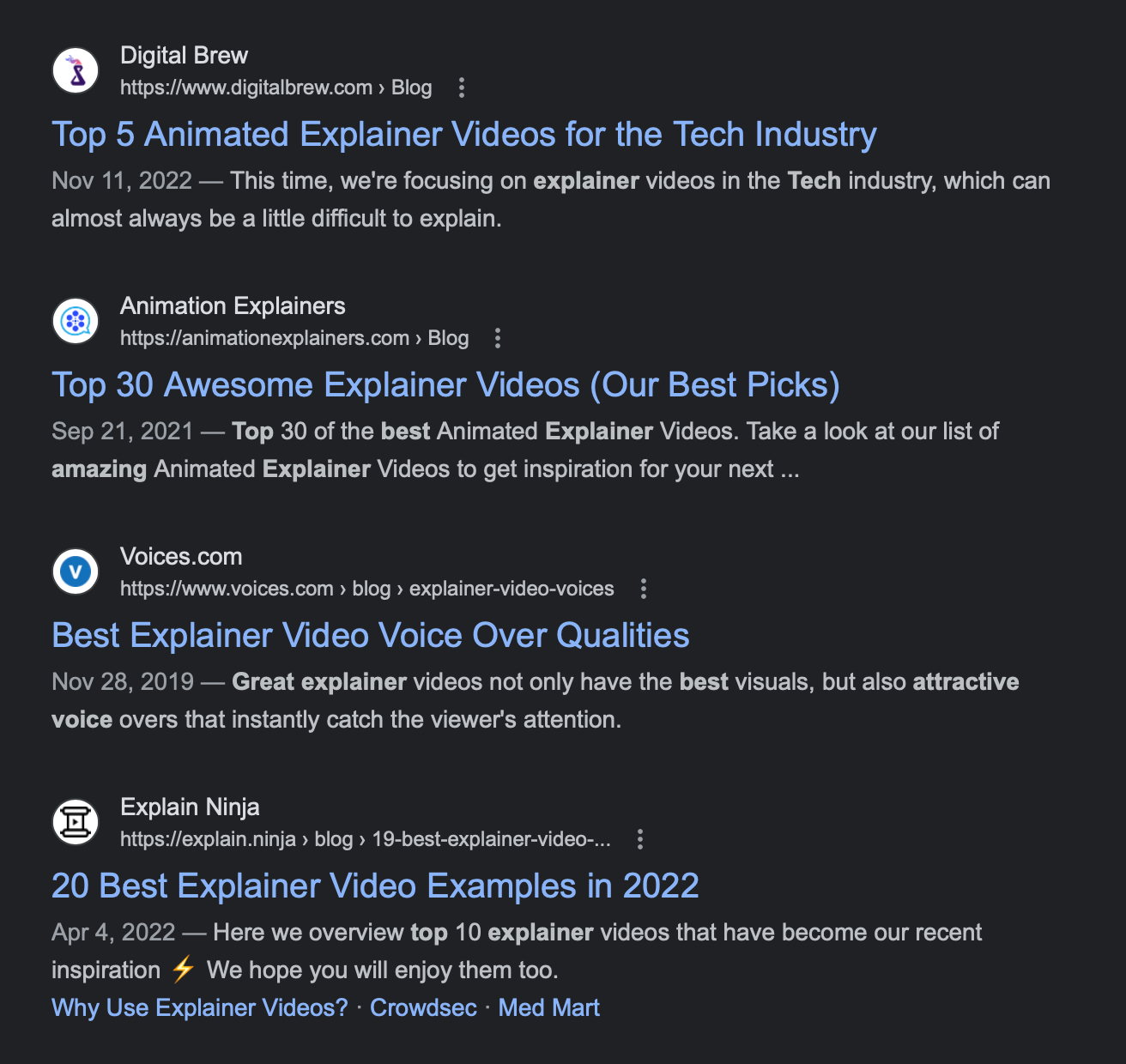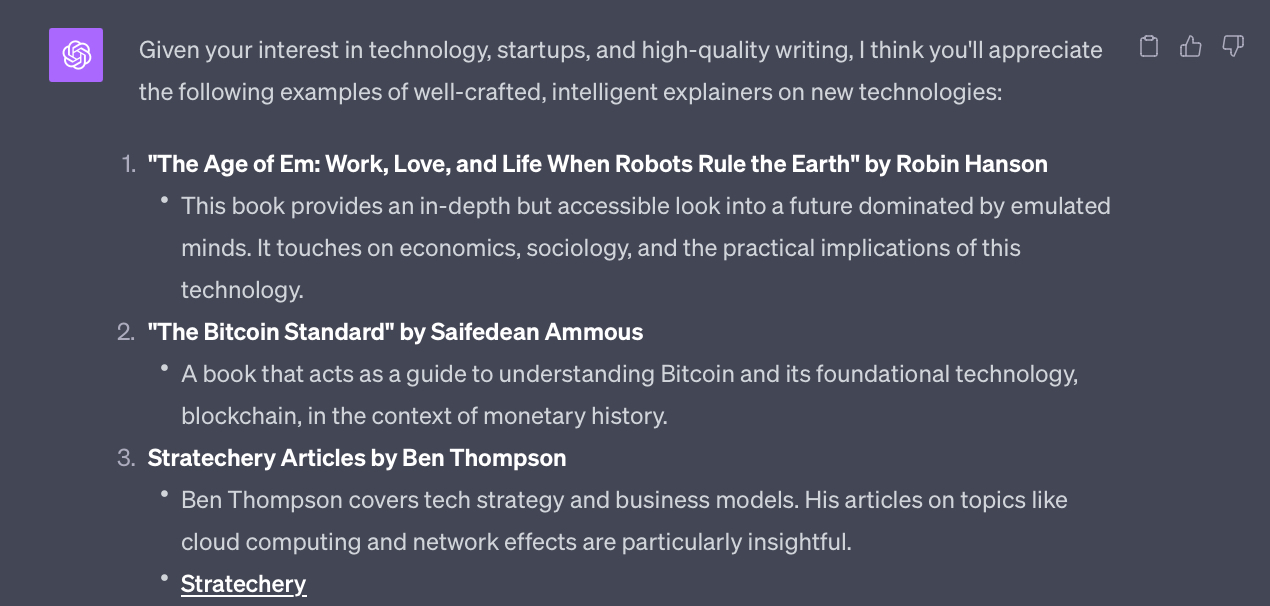
Sponsored By: Scrintal
This essay is brought to you by Scrintal, the game-changer for knowledge management. It's not just an app, it's a canvas of infinite ideas, offering bi-directional links for a seamless workflow. Perfect for research, project mapping, process formulation, planning, or studying - Scrintal lets you organize and connect all your thoughts in one place. Every subscribers get 10% off when you use the code EVERY10.
Great artists steal. But how?
In order to steal, you have to find inspiration. Even in the age of the internet, inspiration isn’t cheap.
Social algorithms feed you mass-produced, lowest-common-denominator content. Google surfaces ads and gamified top 10 lists.
There is still the hard way. Read a lot. Take copious notes. Follow your intellectual curiosity for years until—no matter the situation—you have a reservoir of inspiration to turn to. This method is time-tested and sound, but it takes a lifetime.
Sometimes, you need help now.
What’s more, sometimes you have a situation so specific, a creative problem so well-defined, that you know someone out there has already encountered and solved it better than you ever could.
How do you find those sources? Use an LLM.
. . .
I had a problem like this last week. I wanted to write a practical explainer about ChatGPT but didn’t want it to be boring. I wanted it to feel voicey and personal. I wanted it to be funny and maybe even a little bit poetic.
It’s exciting, as a writer, to be able to frame a problem so specifically like this. Verbalizing your taste gives you a target at which to aim. But I didn’t know how to achieve the effect I wanted.
Surely, someone else had faced this problem before and solved it better than I could. I knew if I could see an example, it would nudge me in the right direction.
But there was nothing I could reference to help inspire me. Not many books on my shelf are practical explainers of new technology with an interesting voice. Not many articles in my Readwise app had those qualities, either.
Google results for “best practical and voicey explainers on technical topics” made me want to puke:
So, instead, I asked ChatGPT:The initial results were pretty good:They got much better as I refined my prompt. I followed up to ask it to specifically find me internet essays and return pieces that combined a practical bent with an interesting voice. It gave me a wide array of suggestions—some mainstream, some that I hadn’t heard of, and some made up. (ChatGPT is, after all, a reasoning engine, not a knowledge database.)Eventually, it made a recommendation that caught my eye:
That headline is just so 😘👌! It is the definition of personal and voicey, and it makes a practical, technical promise. And it’s by a writer I love but hadn't thought of: Joel Spolsky—OG tech internet writer and co-founder of Trello and StackOverflow. He was a major inspiration for me when I was coming up, and the article he wrote did exactly what I hoped to do, better than I ever could.In 2003, he managed to take a dense technical topic—Unicode—and make you feel like he was sitting beside you, a twinkle in his eye, rendering the topic both compelling and understandable. Here’s the opening:
“Ever wonder about that mysterious Content-Type tag? You know, the one you’re supposed to put in HTML and you never quite know what it should be?
Did you ever get an email from your friends in Bulgaria with the subject line “???? ?????? ??? ????”?
I’ve been dismayed to discover just how many software developers aren’t really completely up to speed on the mysterious world of character sets, encodings, Unicode, all that stuff.”
It’s lovely. It has that exact ineffable sparkle, that voice and personality, that I was looking for but couldn’t find.
I was standing in line for lunch at a salad spot near my apartment when ChatGPT gave me the suggestion, and I almost screamed, “I KNOW HOW TO WRITE IT” in front of the unsuspecting lettuce lovers arrayed around me. I don’t think my shoes touched the sidewalk as I glided back to my apartment, ideas burning up in my head, Cobb salad in hand.
Once I had the voice, everything else was easy. I wrote the whole thing in an afternoon. It’s one of the most popular pieces I’ve written recently.
. . .
The power of proper inspiration is that it lets you stand on the shoulders of giants.
Before LLMs, the giants you could find had to fit into—and be at the top of—pre-established mainstream categories. You could Google for top non-fiction writing, but you probably wouldn’t get past Malcolm Gladwell—no search algorithm would ever unearth Sapolsky for you in that context.
Great artists steal, yes. But you can only steal what you can find.
LLMs are different. They let you find the invisible giants—the people who have faced the specific, idiosyncratic creative situation you’re facing.
Once you find these giants, you can stand on their shoulders. And, take it from me, the view from the top is pretty good.
The Only Subscription
You Need to
Stay at the
Edge of AI
The essential toolkit for those shaping the future
"This might be the best value you
can get from an AI subscription."
- Jay S.
Join 100,000+ leaders, builders, and innovators

Email address
Already have an account? Sign in
What is included in a subscription?
Daily insights from AI pioneers + early access to powerful AI tools
.png)














Comments
Don't have an account? Sign up!
Heyyy this is actually pretty cool. I have always been trusting in my "search engine intuition", that is I do not use solely google for my purpose, but I try to filter all the google results and find the most suitable one for me . Ie. Instead of finding top 10 coffee making tips for beginner, I might dive into finding coffee forums, coffee youtube channels, communities of the coffee youtuber, etc. And I will try to find that one cool guy who write really long guide on a secular forum, or uncover that blogger from 2003 who disappeared from the Internet but left behind exactly what I need. The process takes a lot of time though, now I know how I can save time (and find more obscure but useless info, which I love)
@dancernguyen207 awesome!! glad you liked it. yeah, i think chatgpt is great for this particular use case. good luck